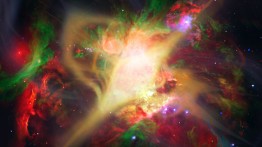COOPERMADE: Nobel Prize in Physics

In 1974 Russell Hulse, a physics graduate student at the University of Massachusetts at Amherst, traveled to the Arecibo Observatory in Puerto Rico to conduct research using its 1,000-foot radio telescope. Just four years earlier, he had graduated from The Cooper Union with a degree in physics, although he had first considered electrical engineering having been fascinated with radio waves and astronomy since childhood. At Cooper he worked with a computer for the first time, an IBM 1620. He used instruction manuals to teach himself its language, FORTRAN, programming the computer to simulate planets' orbits.
His training at Cooper—along with his attempts to build amateur radio telescopes as a teenager— put him in good stead for collaborating with his advisor Joseph Taylor Jr. at the Arecibo lab where the two became the first to discover a binary pulsar, a celestial system in which two pulsars—magnetized, rotating stars—orbit one other. It proved to be a highly significant find: the binary pulsar provided what was then the only evidence confirming Einstein’s theory of gravitational waves. In 1993, Hulse and Taylor were awarded the Nobel Prize in Physics for their discovery.
In a biographical sketch he wrote for the Nobel Foundation, Russell described his interest in science as one that “has never been so much a matter of pursuing a career per se, but rather an expression of my personal fascination with knowing ‘How the World Works,’ especially as it could be understood directly with hands-on experience.”





